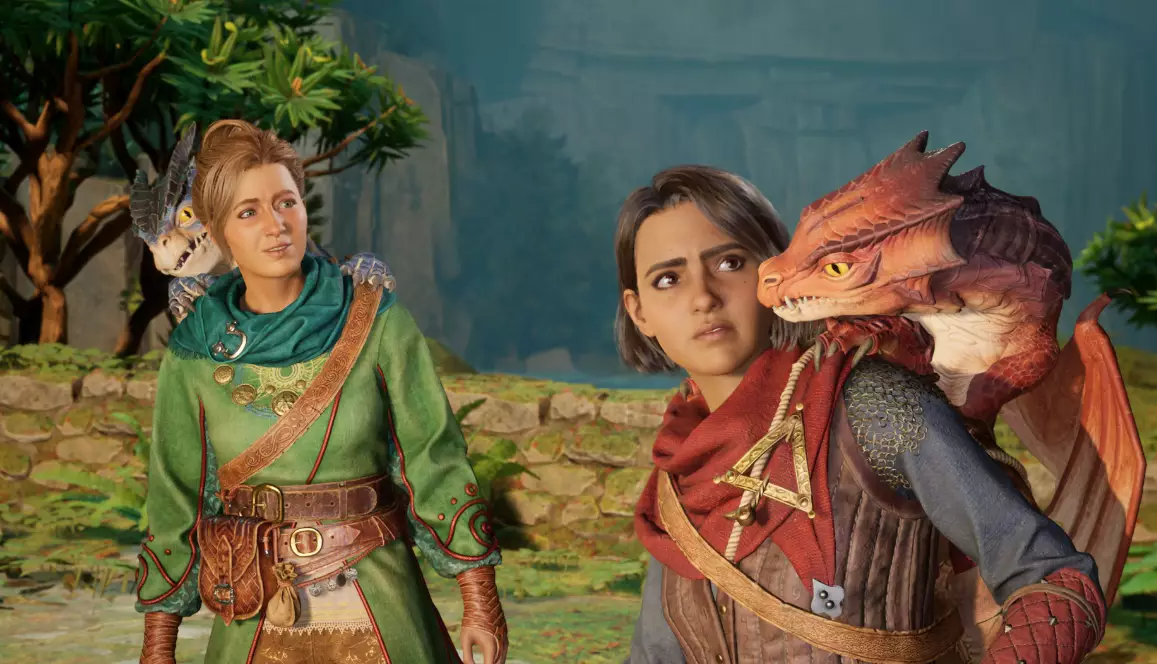Hazelight Studios, known for its groundbreaking co-op game *It Takes Two*, is set to unveil its latest creation, *Split Fiction*, scheduled for release this March. This new title promises a compelling narrative centered around two protagonists, Mio and Zoe, who stumble upon a machine capable of harvesting writers’ ideas without compensation. The game arrives at a time when artificial intelligence (AI) is becoming increasingly integrated into various industries, sparking debates about its implications.
In light of the rising concerns surrounding AI’s impact on creative industries, Hazelight’s creative director, Josef Fares, has publicly shared his perspective in an interview with VGC. He articulated a perspective that strikes a balance between caution and excitement, stating, “It’s both scary and very exciting.” Fares emphasizes that it is crucial for the gaming sector to adapt and work alongside AI rather than resist its advancements. His staunch belief is that while AI presents potential disruptions—including job losses—it also opens avenues for innovative possibilities and enhanced game development.
Fares highlighted the necessity of utilizing emerging technologies to improve gaming experiences, suggesting that the industry must focus on implementation strategies that harness AI’s capabilities without undermining human creativity. He acknowledged that while the integration of AI may result in challenges, it also stands to offer substantial benefits, particularly in creating richer, more immersive games.
Recent studies indicate that a substantial percentage of game developers are already incorporating AI into their workflows, despite lingering anxieties around job security. The landscape is further complicated by the positions of established industry leaders. For instance, Strauss Zelnick, the CEO of Take-Two Interactive, considers AI’s capabilities to be paradoxical—asserting that machines lack the inherent faculty to truly “learn.” Zelnick reaffirmed the indispensable role of human insight and creativity in game production, indicating that while AI can augment processes, it should not replace the human element that is fundamental to game design.
In parallel, Electronic Arts has put forth a rather pragmatic view on AI, acknowledging the potential for short-term job losses but emphasizing the long-term prospects of job creation. The sentiment echoes Fares’ views, as he notes that the evolution of AI will likely produce both “bad stuff and good stuff,” acknowledging the complexity of the issue while simultaneously pushing for acceptance of the inevitability of change.
Amidst these discussions, the ongoing strike involving video game performers sheds light on the contentious nature of AI. Veteran voice actress Jennifer Hale has articulated concerns that AI poses an “existential” threat to the future of voice acting within the industry. This highlights a pressing reality: as AI technology advances, the question of artistic integrity and fair compensation for creative contributions looms large.
The concerns raised by performers suggest a growing need for clear regulations and ethical guidelines surrounding AI’s application in creative fields. As artists negotiate the terms of their contributions in an increasingly automated environment, the stakes amplify, influencing the trajectory of future negotiations and industry standards.
*Split Fiction* is emblematic of a broader narrative currently unfolding in the gaming industry—a narrative that grapples with the complex relationship between human creativity and technological advancement. As developers like Fares advocate for collaboration with AI, acknowledging both its potential and its pitfalls, it is clear that the conversation around AI must continue to evolve. Faced with the dual challenge of innovation and ethical responsibility, the gaming community stands at a crossroads, charged with the task of shaping a future where human artistry and machine intelligence coexist harmoniously. Navigating this terrain will require transparency, adaptability, and a collective commitment to ensuring that technology serves to enhance rather than diminish the creative spirit of the industry.

